Prayer and Meditations for Lent
Should you practice meditations for Lent?
In the past several blog posts, we have explored meditation discussion topics like the power of intention-setting, how to meditate spiritually, and answering questions like, “What does the Bible say about meditation?”
In this blog post, we will now shift our gaze to the more practical side of meditation. As the liturgical season of Lent draws near, it seems appropriate to consider how to weave short Lenten prayers into our days.
Read on to learn more and for an invitation to practice a FREE meditation for Lent together!
Where Do We See Lent in the Bible?
What is Lent and where do we see the Lenten season in the Bible?
Lent is a 40-day reflection, prayer, and fasting season leading up to Easter. However, the word “Lent” is not actually in the Bible. It is actually a shortened form of the Old English word lencten, meaning “spring season”. So where did Lent come from?
The liturgical season of Lent has its roots back in the early Church as a time for Christians to prepare their minds and hearts for the feast of Easter. Scholars suggest that Lent was first mentioned in AD 325 (E. A. Livingstone, Oxford: Oxford University, 2006).
Eventually, the season of Lent evolved to a 40-day fast beginning on Ash Wednesday and ending at sundown on Holy Thursday. (not including Sundays)
While we won’t find the word Lent in the Bible, many Christians find that Lent helps them to identify with Jesus’ temptation in the desert for 40 days. (Matthew 4:1-2; Mark 1:13; Luke 4:1-2).
Further, the discipline of fasting which often occurs during Lent is supported throughout Scripture and mentioned specifically by Jesus. In Matthew 9:15, He explains that the disciples will fast once He is gone, not while He is still with them.
How should Christians observe Lent?
How should Christians observe or practice Lent? Essentially, what should Christians do during Lent?
There is nothing in the Bible that requires or commands 40 days of fasting during Lent. BUT… that does NOT mean that the practices of Lent are not Biblical. (Fun Fact: You will not find the word Advent, Christmas, or Trinity in the Bible either!)
The observances of Lent vary across denominations, and individual practices differ based on personal preferences and beliefs. However, there are some common ways in which Christians often observe Lent:
- Fasting: Giving up certain foods, meals, or indulgences. Recreating a time of fasting in the days leading up to Easter is often seen as a way of self-discipline, and repentance. It can help Christians identify with Jesus’ experience in the wilderness.
- Prayer: Christians may dedicate more time to personal prayer, incorporate short Lenten prayers into their daily rhythm, or participate in communal prayer activities.
- Almsgiving: Christians may engage in acts of kindness, donate to charitable causes, or volunteer their time to help those in need.
- Repentance and Confession: Lent is a season of reflection and repentance. Many Christians take the opportunity to examine their lives, acknowledge shortcomings, and seek forgiveness through confession and repentance.
- Scripture Reading: Increased focus on reading and meditating on Scripture, particularly passages related to the passion and resurrection of Jesus.
- Attending Special Services: Christians often attend additional church services or special yoga and meditation practices during Lent. These could include Ash Wednesday services, Stations of the Cross, and special liturgical events that reflect on the journey to Easter.
Prayers and Meditations for Lent:
Lent is often described as a time of preparation. During the season of Lent, Christians take time to draw inward, to reflect personally, and perhaps even make sacrifices for a greater purpose (aka fasting).
Prayer and Meditations for Lent are also meaningful practices. We can use prayer to prepare our hearts and meditations to prepare our minds. When combined with fasting, these practices will sharpen our spiritual awareness and allow us to go deeper with God.
Short Lenten Prayers
While there are specific liturgical readings for Lent as well as a variety of Lenten devotionals to help you pray during Lent, it is easy to create your own short Lenten prayers.
For example, when you read the Matthew 4 account of Jesus’ temptation in the wilderness we may choose to pray:
Lord, help me to not live on bread alone but strengthen me by your very Word.
Or as you take the opportunity to examine your life, confess shortcomings, and seek forgiveness from God you may choose to pray with the Psalmist (139:2-4):
God, examine me and know my heart; test me and know my anxious thoughts. See if there is any bad thing in me. Lead me on the road to everlasting life.
2 Simple Meditations for Lent
Because Lent is a season of reflection and spiritual preparation for the feast of Easter, Meditation for Lent can be a meaningful practice. There is not a specific “Lenten meditation” but you can get creative in incorporating simple meditations into your Lenten practice. Here are some suggestions:
- Examination and confession. Reflect on areas in your life that need repentance. Breathe deeply and visualize releasing burdens as you seek God’s forgiveness. Can you feel His love, mercy, and forgiveness?
- Reflect on the act of Jesus washing His disciples’ feet. Consider the humility and love involved. Imagine Jesus washing your feet. What do you feel? How might Jesus want you to respond?
Take My Free Meditation Quiz
Wanna learn how to meditate as a Christian? Take my meditation quiz and get your FREE guide to learn what the Bible says AND how meditation & contemplative practices can help you to grow spiritually as a follower of Christ! >>>Take the quiz now.

Grow in Godly wisdom and wonder…
From Bible studies and book clubs to rich topics like Christ-centered yoga, meditation, energy work, prayer practices, and more—our studies are designed to deepen your faith, broaden your understanding, and nurture your soul.
Join the waitlist for exclusive discounts and to be the first to know when our next study opens!






